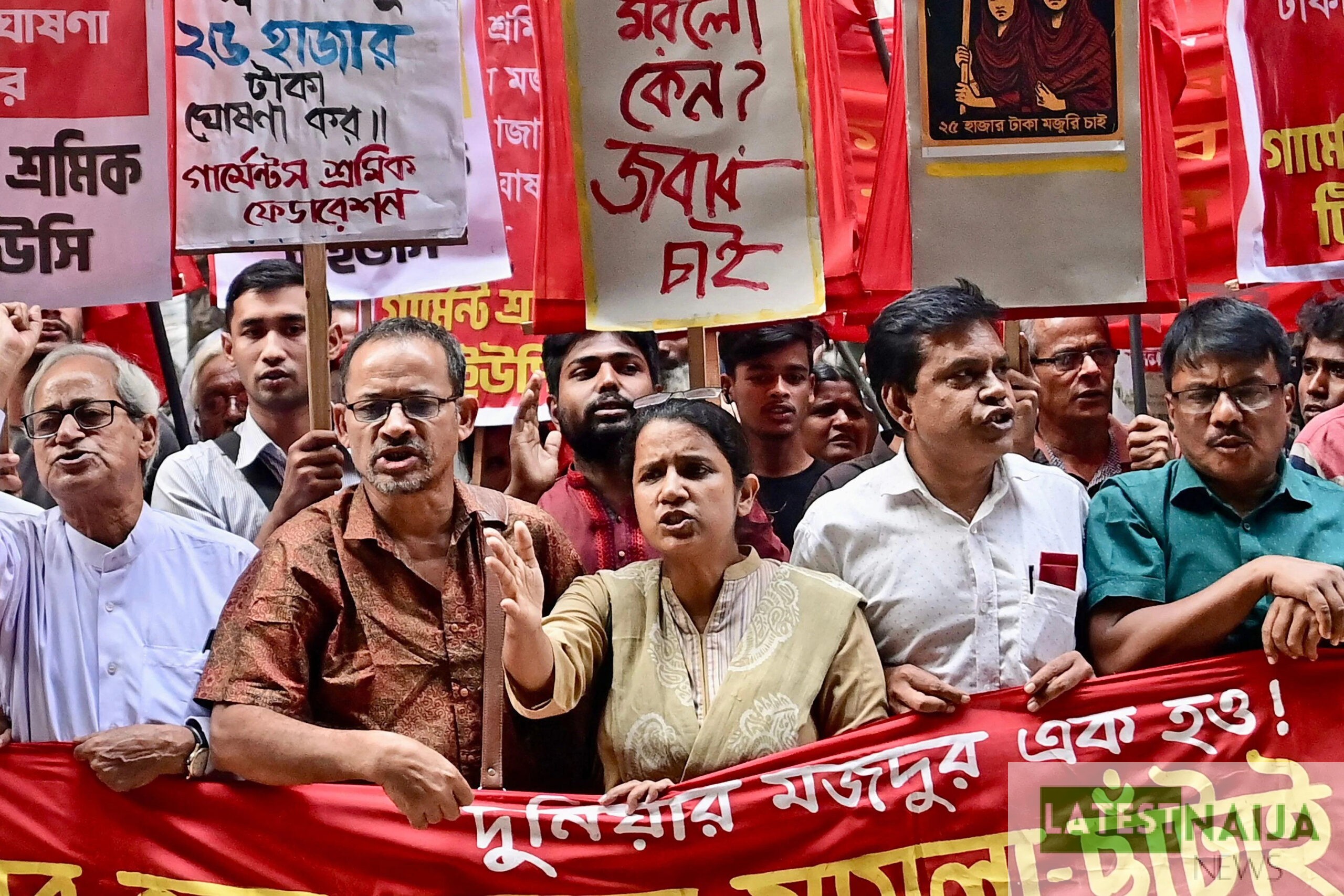In a move to address the longstanding concerns of its four million garment workers, Bangladesh announced a significant increase in the minimum monthly pay by 56 percent on Tuesday.
 The decision, however, was met with immediate rejection by unions who had been pushing for a near-tripling of the wage.
The decision, however, was met with immediate rejection by unions who had been pushing for a near-tripling of the wage.
The South Asian nation is renowned for its thriving garment industry, housing approximately 3,500 factories that collectively contribute to around 85 percent of its annual exports, valued at $55 billion. These factories serve as suppliers to some of the world’s most prominent fashion brands, including Levi’s, Zara, and H&M.
Despite the industry’s economic significance, working conditions for the majority of the sector’s workforce remain dire, with approximately four million workers, primarily women, starting at a monthly pay rate of 8,300 taka ($75).
As frustrations mounted, workers embarked on strikes to demand a substantial increase in their wages, leading to recent outbreaks of violence. Employers countered with an offer of a 25 percent wage hike. The minimum wage is determined by a state-appointed board, which includes representatives from manufacturers, unions, and wage experts.
Raisha Afroz, the board secretary, announced the new minimum monthly wage for garment factory workers, which has been set at 12,500 taka ($113). However, this figure was swiftly rejected by unions, who have been advocating for a minimum wage of 23,000 taka.
Unions argue that their members have been severely affected by persistent inflation, which reached nearly 10 percent in October, and a cost of living crisis exacerbated by the taka’s depreciation by approximately 30 percent against the US dollar since early last year.
Kalpona Akter, the head of the Bangladesh Garment and Industrial Workers Federation, expressed dissatisfaction with the decision, stating, “This is unacceptable. This is below our expectations.”
Typically, the panel responsible for setting the minimum wage convenes every five years. In 2018, it raised the basic minimum from 5,000 taka to 8,000 taka. Additionally, garment workers receive at least 300 taka per month as an attendance fee.
Earlier on the same day as the announcement, tensions escalated as police fired tear gas at thousands of workers who had set a bus on fire outside Dhaka. The incident occurred in Gazipur, an industrial city, where approximately 6,000 workers walked out of their plants and engaged in protests.
Gazipur industrial police unit chief, Sarwar Alam, explained the situation, saying, “They torched a bus. We fired tear gas to disperse them.”
Over the past week, approximately 600 factories producing clothing for several major Western brands were forced to shut down, with many being vandalized, as the nation experienced its most significant wage protest in a decade.
The unrest also affected major industrial areas and a suburb of the capital, resulting in the torching of four factories and at least two worker fatalities. Tens of thousands of workers blocked highways and attacked factories during the protests.
Coinciding with these labor demonstrations, opposition parties have also engaged in violent protests, demanding the resignation of Prime Minister Sheikh Hasina. These protests come ahead of scheduled elections in January, adding to the complex socio-political landscape in Bangladesh.

